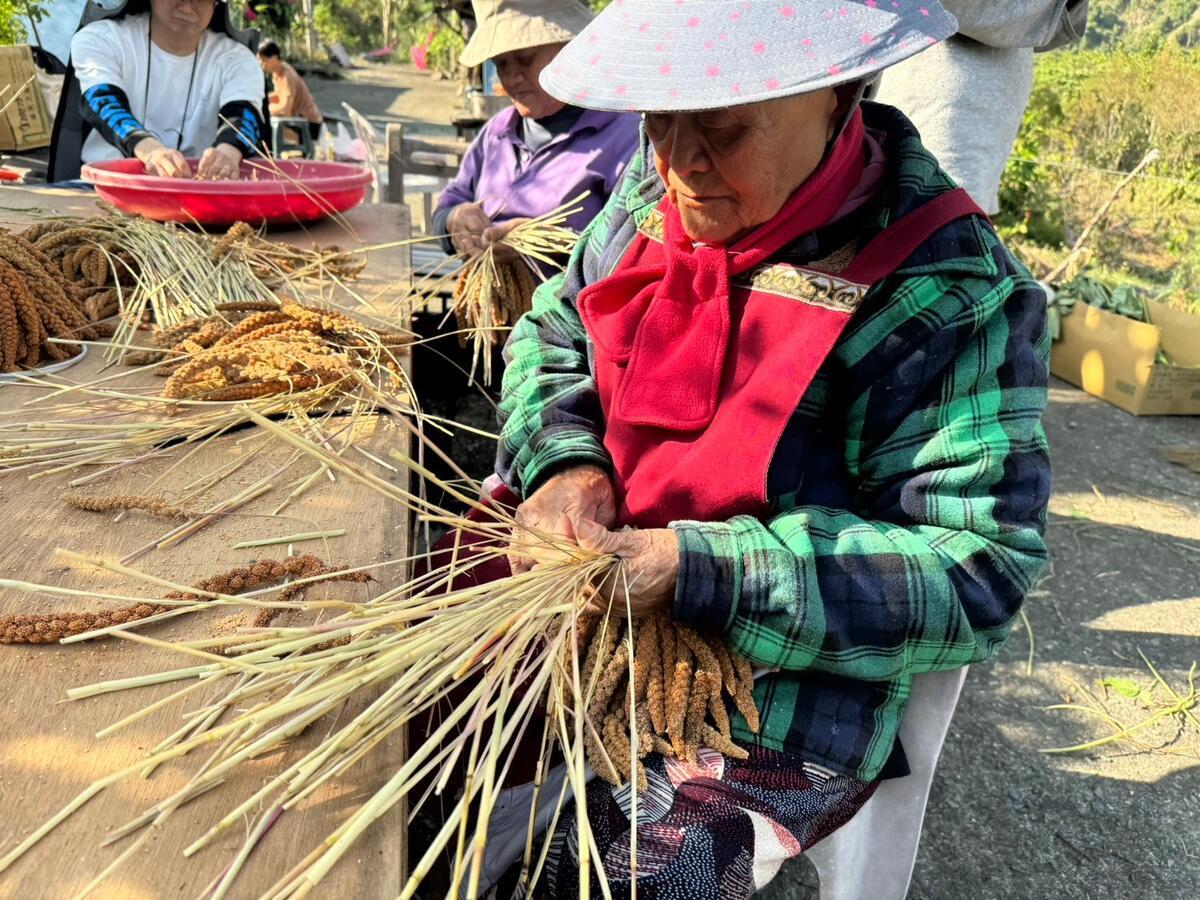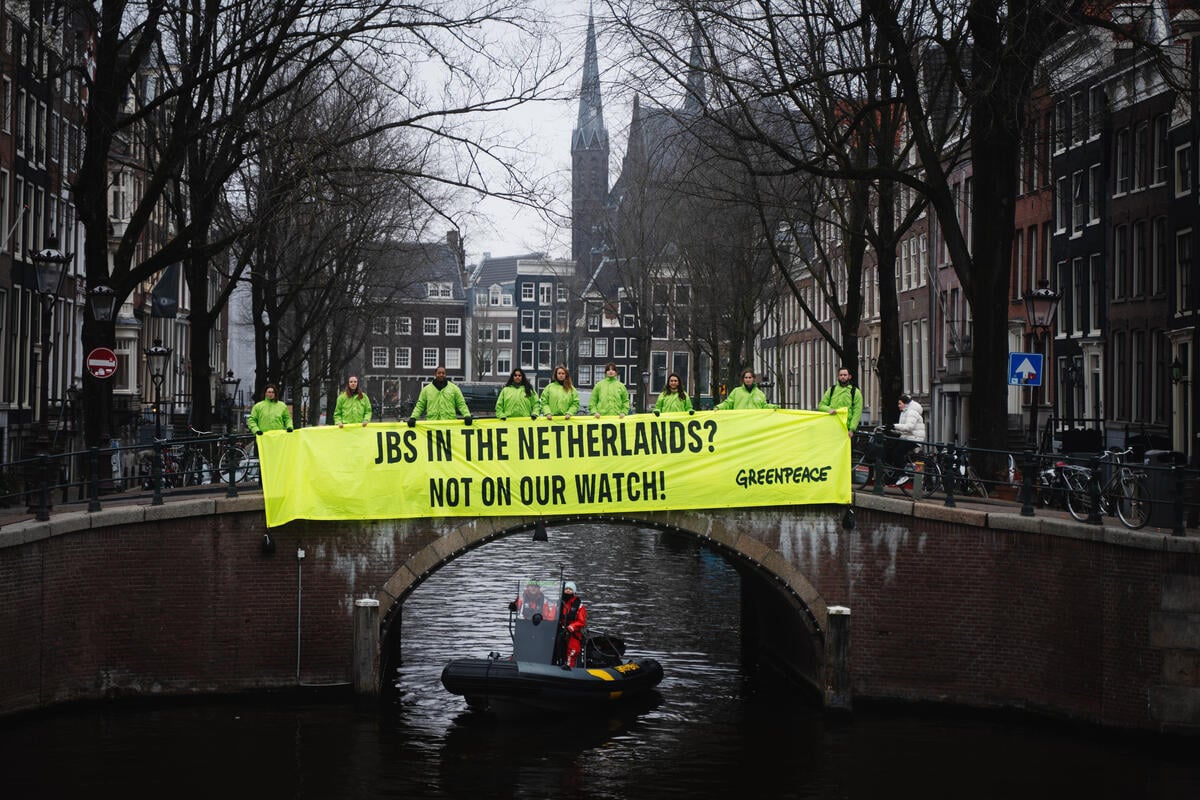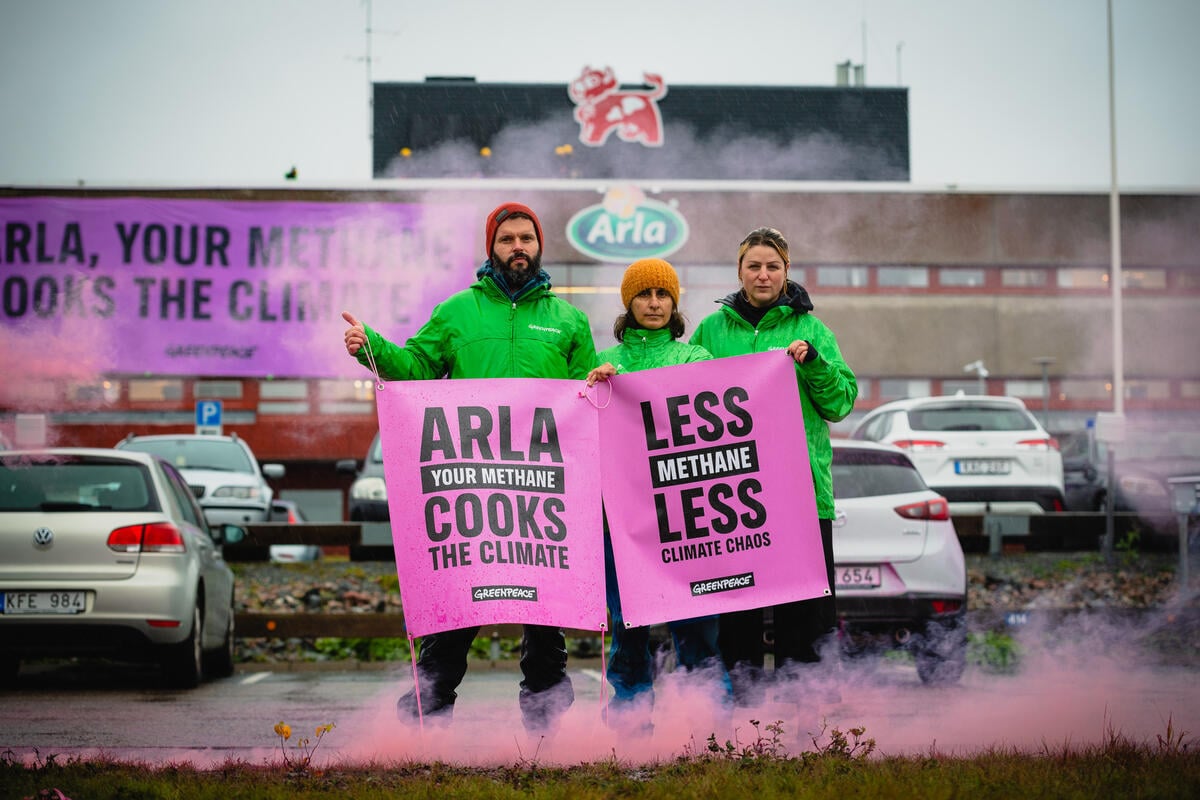Amsterdam, Netherlands – This World Meat Free Week, Greenpeace is calling on cities to reduce global meat and dairy consumption by introducing two plant-based meals a week by 2020 in public institutions. Livestock releases as much greenhouse gases as all cars, trucks, planes and ships put together, globally. [1] If left unchecked, climate harming emissions from the livestock industry could undermine the success of the Paris Climate Agreement.
Elvira Jimenez, Meat & Dairy Consumption Project Lead, Greenpeace Spain, said:
“Cities account for 70% of global greenhouse gas emissions and represent some of the biggest buyers of bulk quantities of food. Our youth is where positive change can grow, so Greenpeace recommends that schools, colleges and universities introduce at least two plant-based meals weekly by 2020. It’s also up to the individual and our communities to make the right dietary choices for our health and the health of our planet.” [2] [3]
According to a recent report from Greenpeace International, global meat and dairy production and consumption must be halved by 2050 to avoid dangerous climate change. [4] Changing our diets from meat-intensive to more plant-based alternatives is also essential to our health. High red meat consumption has been linked to cancer, heart disease, obesity, and diabetes. Five million deaths each year — nearly nine people dying a minute — could be avoided by 2050, if people all around the world shifted to healthier diets with more veggies and legumes and less meat. [5]
Aberdeen University Professor and former Convening Lead Author for the Intergovernmental Panel on Climate Change (IPCC), Pete Smith, said:
“The evidence is powerful from a health and environmental perspective; people need to shift their consumption toward more plant-based diets, and governments, towns, cities and companies need to provide the enabling environment to help people to make this change.”
A strong group of city frontrunners, well on their way towards a more plant-based procurement policy, are already showing how it can be done.
To applaud this growing movement of cities, public institutions as well as citizens from all over the world and to encourage others to follow their lead, Greenpeace International has just published an online world map of the most prominent frontrunners featuring cities, schools, universities etc. worldwide from Brazil over Paris to the Philippines. [6]
ENDS
Notes:
[1] IPCC 2014: Smith, P., et al. 2014. Agriculture, Forestry and Other Land-Use (AFOLU).
[2] UN HABITAT, 2011. Global Report on Human Settlements: Cities and Climate change.
[3] Public authorities are often responsible for the purchase and provision of food in municipally owned buildings, including local government premises and schools. Annual expenditure on catering services for the EU-28 is around EUR 200 billion. Catering services are shared between self-operating public bodies and contract caterers, with around 43% of meals in health institutions and 31% in schools served by contractors. Source: http://zerowasteeurope.eu/wp-content/uploads/2018/04/Unwrapped_How-throwaway-plastic-is-failing-to-solve-Europes-food-waste-problem_and-what-we-need-to-do-instead_FoEE-ZWE-April-2018_final.pdf ; Boyano, A., et al., Revision of the EU GPP criteria for Food procurement and Catering services, in JRC Technical Reports. 2017, Joint Research Centre (JRC): Seville, Spain.
[4] Less is More: Reducing meat and dairy for a healthier life and planet, Greenpeace International.
[5] Springmann, M., et al. 2016. Global and regional health effects of future food production under climate change: a modelling study. The Lancet, 387: 1937-1946.
[6] Greenpeace world map of first movers and cities and public institutions making significant progress towards cutting down meat and dairy consumption. Some examples of cities and public institutions already setting the tone by offering plant-based meals at school are: Malmö (Sweden), Helsinki (Finland), Bern (Switzerland), Liverpool (UK), Oakland (USA), Los Angeles (USA), Ghent (Belgium), Munich (Germany), Paris (France), Mouans-Sartoux (France), Veracruz (Mexico).
Other examples of a growing movement of cities getting organised to cut down meat and dairy production and consumption is The Milan Urban Food Policy Pact. This is the first international protocol that calls for cities to develop sustainable food systems that grant healthy and accessible food for all, protect biodiversity and reduce food waste. Another example is the C40 network of world megacities which supports city efforts to create and implement comprehensive solutions that reduce carbon emissions and increase resilience throughout the urban food system.
Contacts:
Dawn Bickett, Meat and Dairy Comms Lead, Greenpeace International (based in the US), [email protected], +1 510 552 4984
Christina Koll, Meat and Dairy Comms Lead, Greenpeace Nordic (based in Denmark), [email protected], +45 2810 9021
Greenpeace International Press Desk (available 24 hours): [email protected], +31 (0) 20 718 2470



